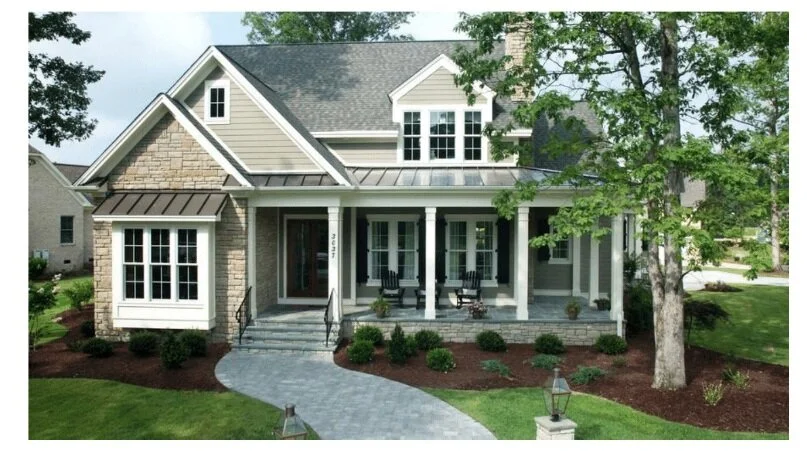Design Principles of Landscaping
People are spending ample time in their homes, now more than ever, which can lead to some serious DIY projects. Landscaping has become one of the most popular projects that bridges together nature and creative designs. However, many people have no clue where to begin. Understanding the basic fundamentals behind landscape design and the “why” behind the layout can lead to your dream oasis.
We invited Jonathan Williams, landscape design instructor at Emory University, for an interactive virtual session that covered basic design principles and design knowledge for identifying enhancements in our landscapes.
“When thinking about your landscape, it is critical to design with intention”
What are the Characteristics of a Great Landscape?
We asked our attendees, “What makes a great landscape stand out to you?” The top three characteristics included: lots of color, relaxing, and low maintenance.
According to Williams, a great landscape is “Simple. Sustainable. Purposeful. Beautiful.” Before you begin to rip up your driveway or purchase a ton of expensive plants, you need to understand the key to a successful project is designing with intention! Here is a guide for observing your space:
1. Understand the site!
2. Consider how a space(s) will be used and its function.
3. Determine and develop the overall style of the design.
4. Define the ideal characteristics of the materials within your design/composition.
5. Select final materials (plants and hardscapes).
Principles of Design
In landscaping, there are four elements to consider when designing your vision.
1. ORDER - This creates the base or framework for the landscape. For example: symmetrical vs. asymmetrical
Image credit: StylishEve.com
Image credit: SouthernLiving.com
2. UNITY – This is the relationship of all the elements in your design. There are four basic components of unity. For example: Purposefully incorporating a dominant feature in your design that’s unique in size, color, and texture, like birdbaths, a pond, or a bench.
Image credit: Williams, J. [n.d.]
3. RHYTHM – Rhythm is used to create a visual sequence, just as music does with a beat. By correctly using rhythm in your design, you can direct the eye through a landscape. For example: Using repetition is a simple way to unify any landscape by repeating similar elements throughout the design.
4. VARIETY – This relates to the depth and interest of design. For example: Using variations of color, texture and shapes can help keep your landscape from becoming monotonous.
Image credit: Jon William Sarti
Using these principles are just the first steps in achieving your desired landscape. Join Jonathan Williams for part two of Design Principles Workshop on Wednesday, May 20th 11:30 a.m. - 12:30 p.m.
About Jonathan Williams
With over 18 years of experience in the industry as a landscaping artist and project manager, Jonathan has a keen understanding of design and creating sustainable landscapes. As an artist, he takes a creative approach to each project using the elements and principles of design to develop stunning landscapes. His experience in landscaping design project management informs his firm understanding of the real-world challenges in landscape installation. He approaches every design with thoughtfulness and with purpose, always considering how the spaces he creates will be used and cared for. His designs gracefully blend structure and nature, with the goal of bringing unity and order to the landscape. Jonathan has worked on projects featured in Atlanta Homes and Lifestyle, as well as high-end residential, commercial office, and retail landscape design. He obtained his Landscape Design Certification from Emory University.
Russell Landscape provides services in metro Atlanta, Nashville, Charleston, Savannah, Brunswick, and Hilton Head. The group offers a complete and thorough line of landscape design/build/maintain services to exclusive commercial buildings, town homes, condominiums, and Home Owners Association clientele. The company has received numerous awards from the Metro Atlanta Landscape and Turf Association for projects installed or maintained. Since the third year in business, Russell Landscape Group has consistently been listed in the Atlanta Business Chronicles commercial landscape contractors.




![Image credit: Williams, J. [n.d.]](https://images.squarespace-cdn.com/content/v1/547c8400e4b04456c82aade5/1589718803286-HV4Z4M5F774DFITDX77D/Screen+Shot+2020-05-14+at+6.33.14+PM.png)


